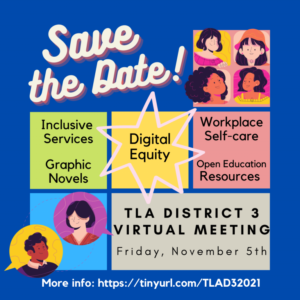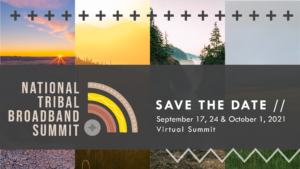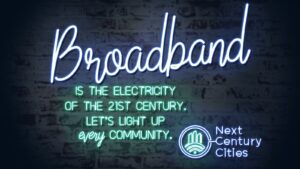
Chris Ritzo (M-Lab) and I presented our paper, titled “Measuring Library Broadband Networks to Address Knowledge Gaps and Data Caps” to the attendees at the 49th Annual Research Conference on Communications, Information, and Internet Policy, which was virtual again this year. The paper presents findings from our U.S Institute of Museum and Library Services funded research project to develop an open source broadband measurement system with and for public libraries across the U.S.
Here is the abstract from the paper:
“In this paper, we present findings from a three-year research project that examined how advanced broadband measurement capabilities can support the infrastructure and services needed to respond to the digital demands of public library users across the U.S. Previous studies have identified the ongoing broadband challenges of public libraries while also highlighting the increasing digital expectations of their patrons. However, few large scale research efforts have collected automated, longitudinal measurement data on library broadband speeds and quality of service at a local, granular level inside public libraries over time (including when buildings are closed). This research seeks to address this gap in the literature through the following research question: How can public libraries utilize broadband measurement tools and training materials to develop a better understanding of the relationship between library network infrastructure and digital services? In response, qualitative data were gathered through interviews with public librarians, IT network administrators, focus groups with patrons, and field site observations at 10 public libraries across the U.S. during the first year of the research. Additional interviews with public librarians and IT administrators were conducted during a UX design process, which helped to inform the development of an open source, broadband measurement system with and for public libraries during year two of the research. Quantitative measurement data using this system, which was deployed at 30 public libraries across the U.S., were then collected for our study.
Findings from our analysis of the qualitative and quantitative data reveal gaps in understanding between the perceptions of public librarians regarding their library broadband capacity and the actual performance of their broadband networks. While our study participants reported a need for broadband measurement data in their public libraries to justify infrastructure upgrades and improve communication with patrons, our results confirm that having access to data would also address knowledge gaps regarding the actual public library broadband usage and capacity needed to serve their communities digital demands. These findings have implications for state library agencies and federal policymakers interested in having access to data on observed versus advertised speeds and quality of service of public library broadband connections nationwide.”
The presentation slides are available for download here via ResearchGate.



